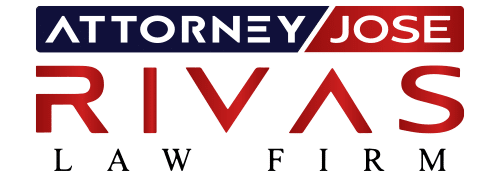“The Internal Revenue Service Criminal Investigation Division conducts criminal investigations regarding alleged violations of the Internal Revenue Code, the Bank Secrecy Act and various money laundering statutes. The findings of these investigations are referred to the Department of Justice for recommended prosecution.” – IRS
Federal Tax Evasion
Federal tax evasion charges often start with an IRS audit that uncovers discrepancies between actual income and what’s been reported. An audit is usually triggered by tax returns that show a pattern of certain red flags known as “badges” of fraud. For instance, not reporting bank accounts or investments, having expenditures out of line with reported income,
unusual cash transactions, or inexplicable sources of income.
Often, a bad situation gets worse when a taxpayer responds to IRS inquiries by giving false information or concealing records. Actions like these make it more likely that the taxpayer will face federal tax fraud charges because it strengthens a case for fraudulent intent, a cornerstone of any criminal investigation. If you face an IRS audit and anticipate federal tax evasion charges, talk to an experienced and aggressive defense attorney for federal crimes at the Rivas Law Firm. Call 407-644-2466 for a free consultation.
Federal Tax Fraud Charges
An experienced attorney can help evaluate your case and develop the best defense strategy. A successful defense can result in a reduction in the charges and/or the severity of the penalties, or in some cases, the charges may be dismissed entirely.
Tax fraud and evasion involve intentionally avoiding or concealing the payment of taxes owed. There are several different forms and penalties associated with evasion and fraud, including criminal charges and fines. These charges can include filing a false return, failing to pay taxes, failing to report all income and/or assets, or deliberately engaging in a scheme to avoid taxes.
The outcome of a federal tax fraud case will depend on a variety of factors, including the evidence presented and the experience of the attorney. An experienced criminal defense attorney can help develop a defense strategy and provide guidance to navigate the complex regulations associated with federal tax fraud.
The government must prove beyond a reasonable doubt that you willfully attempted to evade or defeat any tax imposed by the Internal Revenue Code. This means that you must have acted with a specific intent to avoid paying taxes that you knew you owed. The government must also show that you took some affirmative act to conceal or misrepresent your income or deductions.
In their handy Tax Crimes Handbook, the IRS spells out exactly the types of dodgy behavior they are on the lookout for:
“Affirmative acts of evasion of payment almost always involve some form of concealment of money or assets with which the tax could be paid or the removal of assets from the reach of the I.R.S. [and] generally involve schemes to deal in currency, place assets in the names of others, transfer assets abroad or omit assets… ”
Examples include:
- Concealing assets by using bank accounts of family members and coworkers.
- Making expenditures extensively by cash and through the use of third parties’ credit cards and placing assets in the names of third parties.
- Taxpayer’s false statement to I.R.S.: Agent claiming lack of resources to pay.
- Maintaining a cash lifestyle by conducting all personal and professional business in cash, possessing no credit cards, bank accounts, or accounting records and never acquiring any attachable assets.
- Bankruptcy fraud: Predicating the bankruptcy petition on false or fraudulent obligations.
The penalties for federal tax charges can be harsh. The maximum sentence is five years in prison along with a fine of up to $100,000. Federal judges have a lot of leeway in sentencing, so in case of a conviction, it’s best to have an experienced and aggressive criminal defense attorney who can advocate for the most lenient sentence possible.
Fighting Federal Tax Fraud Charges
There are several possible defenses that you may raise against federal tax evasion charges, depending on the facts and circumstances of your case. Some of the common defenses include:
– Lack of willfulness: You may argue that you did not act with a specific intent to evade taxes but made an honest mistake, relied on bad advice, or misunderstood the law.
– Good faith belief: You may argue that you had a good faith belief that you did not owe any taxes or that you complied with the tax law, even if your belief was unreasonable or incorrect.
– Insufficient evidence: You may argue that the government does not have enough evidence to prove each element of the offense beyond a reasonable doubt or that the evidence is unreliable, inconsistent, or tainted by misconduct.
– Statute of limitations: You may argue that the government waited too long to bring charges against you and that the statute of limitations has expired. The statute of limitations for tax evasion is six years from the date of the offense.
Federal tax evasion charges are serious and complex and require a skilled and experienced defense attorney. If you are under investigation or facing prosecution for tax evasion, contact a federal criminal defense lawyer as soon as possible to protect your rights and interests. Call 407-644-2466 for a free consultation with an Orlando criminal defense attorney at the Rivas Law Firm.








